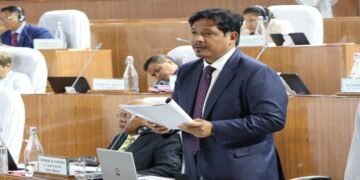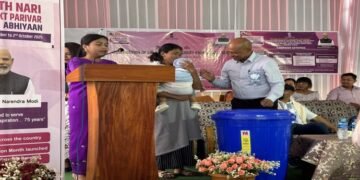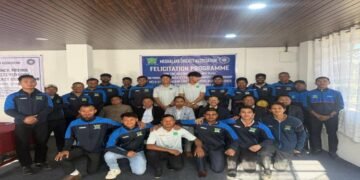Shillong (Meghalaya), Aug 12: The two-day Symposium on Community Based Tourism (CBT) in North-East India concluded on a high note, with enthusiastic participation from experts, tourism industry leaders, students, and stakeholders from across the region. The event, aimed at exploring the potential of community-driven tourism and its role in sustainable development, brought together diverse perspectives and insights.
The symposium, which took place at IIM Shillong Umsawli campus, featured an array of informative sessions and discussions, providing a platform for meaningful dialogues and collaborations. Students from esteemed institutions such as Martin Luther University, ICFAI, Royal Global University Guwahati, Shillong Law College, Downtown University Guwahati and Bajoria Group of Institutions joined the event.
The inaugural session of the symposium was dedicated to delving into the theme of Community-Based Tourism in North-East India. This was followed by an insightful address by Cyril V. D. Diengdoh, IAS, Director of Tourism Meghalaya, who shared valuable insights on the government’s role in nurturing tourism ecosystems. He also highlighted Meghalaya’s progressive Tourism Policy.
The symposium culminated with a captivating closing ceremony, graced by the presence of Paul Lyngdoh, Minister of Tourism as Chief Guest. Also in attendance was Smt. R. Lalrodingi, Advisor Tourism & Industry, NEC, as the Guest of Honor, Atul Kulkarni Member BoG IIM Shillong and Dr. S Ningombam Coordinator of Kalam Centre IIM Shillong.
Tourism Minister Paul Lyngdoh shared his insights on Shillong’s beauty and the potential of the Tourism Policy, while highlighting the exemplary role of Cherrapunji as a model of Community-Based Tourism. He emphasized the need for guided itineraries to promote tourism across various regions of the North-East, encouraging visitors to explore the rich diversity of Assam, Nagaland, Arunachal Pradesh, and beyond.
The symposium stands as a significant milestone in fostering collaborative efforts towards sustainable and community-driven tourism in North-East India. The discussions and deliberations have set the stage for a more responsible and inclusive approach to tourism, aligning with the region’s cultural heritage and natural beauty.









































